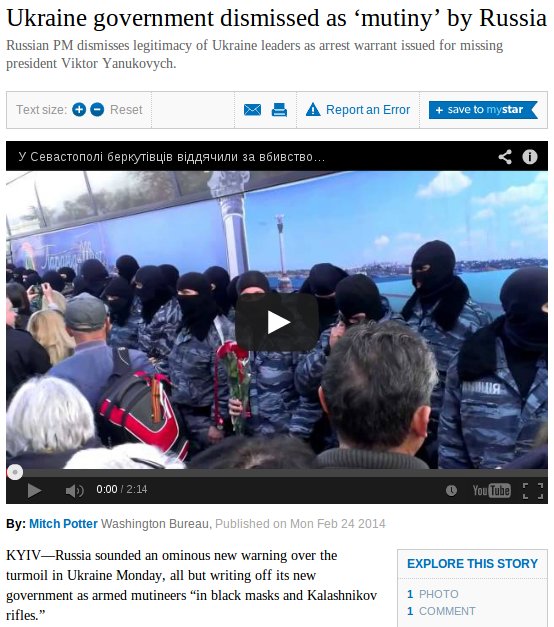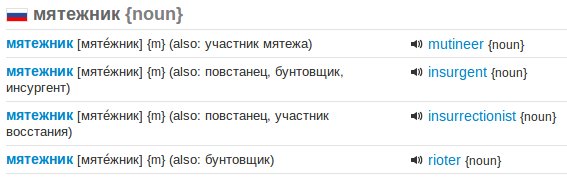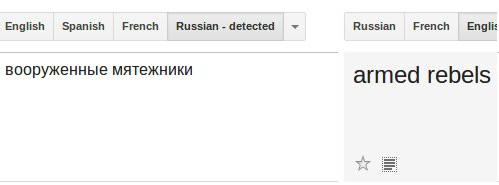Update: After this article was published, a reader shared a copy of a statement from the Russian Ministry of Foreign Affairs. They also don’t use the word ‘mutineers’, but instead use ‘extremist’ and ‘militant’…
____________________
If you’ve been watching the media lately (and not totally immersed in the Olympics), you may have noticed there’s been a revolution in the Ukraine. It’s the same game that’s been in-play for some time now- a proxy street war between Russia and the West over the spoils of this severely depressed and poverty-stricken country. There are allegations that the West is supporting neo-Nazis to achieve their goal.
Nazi propagandist Joseph Goebelles said “if you tell a lie big enough and keep repeating it, people will eventually come to believe it”. This is very true, people are all too often like sheep. But effective propaganda isn’t always based on ‘big’ lies, sometimes it’s the little details that count, sometimes, all you have to do is to creatively mistranslate someone’s words…
Today’s most popular headline about the Ukraine claims that Russian Prime Minister Dmitry Medvedev has refused to engage with the “armed mutineers” who violently overthrew the government. It’s the perfect anti-Russian propaganda- look how archaic they are using words like mutineer!
Medvedev’s speech was in Russian, the word he used to describe the Ukrainian revolutionaries was мятежники (mjatezhniki). Language being complex, this word could be translated in many ways:
As you can see, the word ‘mutineer’ is a valid translation. That said, even a half-witted translator would know better than to use that, it’s the worst of the four options. Even Google Translate knows better:
Blatant propaganda…
Related articles








